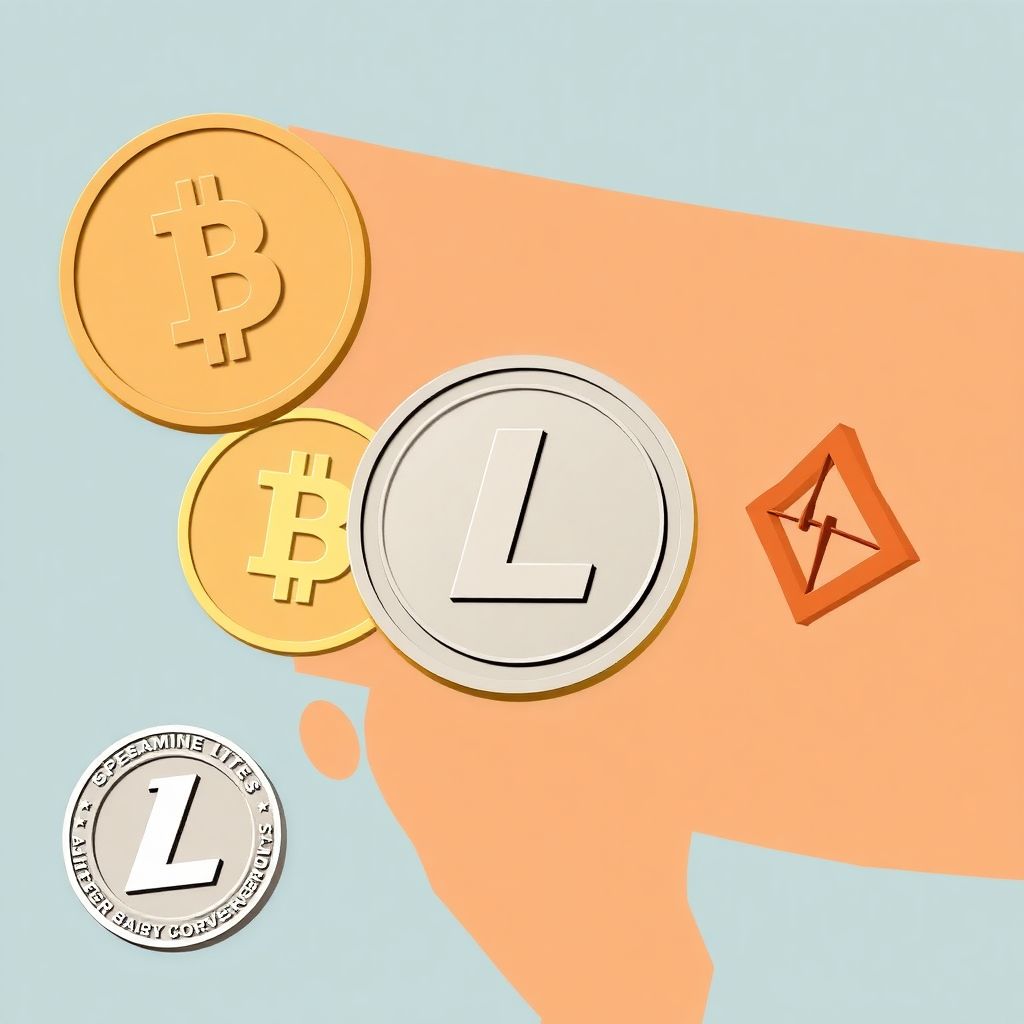Three new cryptocurrency exchange-traded funds (ETFs) are poised to launch in the United States, marking another significant development in the growing integration of digital assets into traditional financial markets. According to Bloomberg ETF analyst Eric Balchunas, U.S. exchanges have posted official listing notices for Bitwise’s Solana ETF and two ETFs from Canary focused on Litecoin and Hedera (HBAR). These products are expected to go live on Tuesday.
The new listings suggest that investors will soon have greater access to altcoin exposure through regulated financial products, without the need to directly hold or manage cryptocurrencies themselves. This launch follows a broader trend in the industry, where institutional-grade products linked to crypto assets are gaining traction among both retail and professional investors.
Bitwise’s Solana ETF stands out not only for providing exposure to SOL, but also for incorporating staking features. Staking allows investors to lock up their Solana tokens to support the blockchain’s proof-of-stake consensus mechanism, earning rewards in the process. This ETF is among the first of its kind to integrate staking into a traditional investment vehicle, offering potential yield in addition to price exposure.
Canary’s Litecoin and Hedera ETFs also represent an important step in diversifying the crypto ETF landscape. While Bitcoin and Ethereum have dominated the ETF space so far, the inclusion of LTC and HBAR opens the door for broader altcoin representation. These listings could signal a shift toward more inclusive crypto portfolios for ETF issuers and investors alike.
Balchunas also noted that Grayscale’s Solana Trust is expected to convert into an ETF the same day, marking another milestone in the evolution of crypto investment products. Grayscale, a pioneer in crypto trusts, has been actively transitioning its offerings into ETFs following regulatory approvals.
The launch comes amid a complex regulatory environment. Since the partial shutdown of the U.S. federal government on October 1, the Securities and Exchange Commission (SEC) has been operating at reduced capacity. Despite these limitations, the agency approved the first spot Bitcoin ETFs in January 2024, clearing the path for issuers like BlackRock, Bitwise, and Fidelity to bring their products to market.
The inclusion of staking in the new Solana ETF builds on recent developments. In July, the REX-Osprey Solana Staking ETF debuted on the Cboe BZX Exchange, becoming the first crypto staking ETF to receive U.S. regulatory approval. Following this, Grayscale updated its Solana Trust to include staking, after the SEC clarified in September that certain staking practices do not constitute securities offerings.
Thomas Uhm, COO of Jito—a Solana-based staking and MEV protocol—emphasized that these ETF approvals are just the beginning. He revealed ongoing collaboration with top-tier investment banks to develop financial products tied to staked Solana ETF options and accumulation strategies. This suggests that the financial innovation surrounding these ETFs could extend far beyond traditional passive investing.
The ETF landscape in the U.S. continues to expand rapidly. As of late 2023, at least 16 crypto ETFs were awaiting SEC approval, spanning a wide range of altcoins including Dogecoin. The increasing interest from asset managers is driven by surging investor appetite for regulated crypto exposure.
The emergence of staking ETFs may also reshape the perception of crypto as a yield-generating investment class. By incorporating staking rewards, these funds could appeal to income-focused investors who previously viewed crypto as too volatile or speculative.
Moreover, the launch of these ETFs could bolster liquidity and price discovery for the underlying assets. As more institutional capital flows into structured products like ETFs, it may reduce volatility and improve market efficiency for cryptocurrencies like Solana, Litecoin, and Hedera.
However, risks remain. Regulatory uncertainty around staking, custody, and investor protections continues to cast a shadow over the market. While the SEC’s recent clarifications have provided some guidance, the long-term regulatory framework for crypto ETFs is still evolving.
In addition, the success of these products will depend on investor reception. While Bitcoin and Ethereum ETFs have seen strong inflows, it remains to be seen whether altcoin-focused ETFs will attract similar interest, especially in a market still recovering from the volatility of 2022 and 2023.
Looking ahead, the launch of Solana, Litecoin, and Hedera ETFs could pave the way for similar funds based on other proof-of-stake assets like Cardano, Polkadot, or Avalanche. As investor demand grows and regulatory frameworks mature, the ETF market may become a dominant gateway for mainstream adoption of digital assets.
In summary, the upcoming launch of these three ETFs represents a critical step in the evolution of crypto investment products. By combining traditional financial structures with innovative blockchain features like staking, these funds could transform how investors engage with the digital asset space—bridging the gap between decentralized technology and institutional finance.

